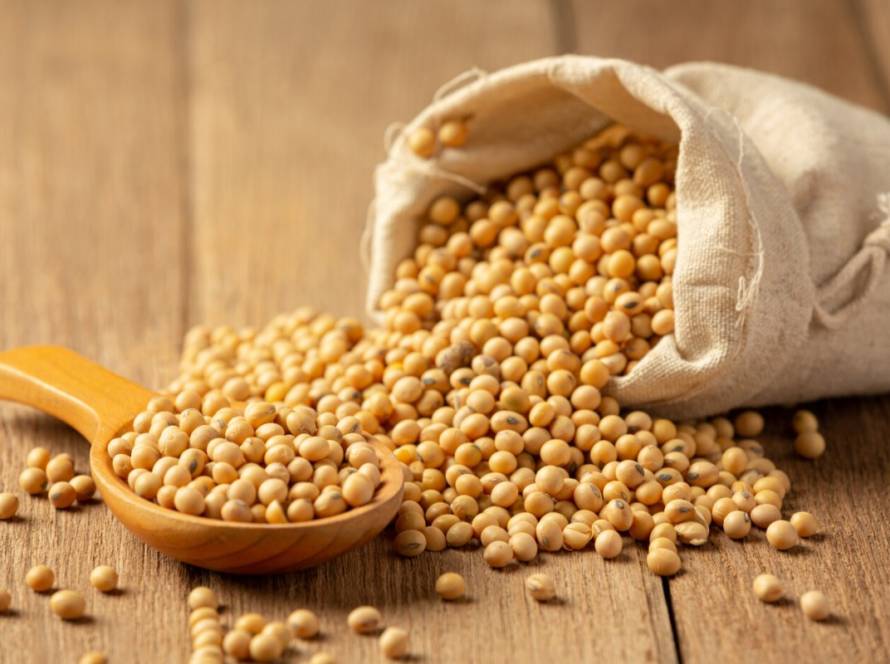A silent but impactful global movement is beginning to reshape the agricultural landscape. China's decision to suspend purchases of soybeans from the United States at the start of the new harvest has generated a shift in agricultural trade with direct implications for South America. The shift of the world's largest buyer to Brazil and Argentina momentarily strengthens the continent's position, but has complex effects on port bases, export premiums, and processing industry margins.
According to market expert Marcelo Teixeira, the change repositions Brazil at the center of the game. "The trade shock expands Brazil's short-term advantage, but it also requires increased attention. We've already recorded exports above the average of the last five years, but this accelerated increase puts pressure on domestic inventories and could increase the price of raw materials for local industries, which already operate with very tight margins," he states.

Market Specialist Marcelo Teixeira: "Brazil will emerge stronger in the short term, but it needs to be mindful of the geopolitical landscape and its domestic affairs. We will only be able to sustain this advantage if we reduce competitive bottlenecks." – Photo: Disclosure/JPA Agro
The numbers confirm Teixeira's analysis. According to a report by JPA Inteligência, Brazil exported 91.2 million tons of soybeans through September, just 15 million tons below the target projected by Conab for the entire 2024/25 cycle. In August, shipments totaled 9.34 million tons, well above the five-year average of 6.94 million. This accelerated pace presents risks, since the more raw soybeans Brazil exports, the less available for domestic crushing, which generates meal and oil, essential inputs for domestic supply and the protein industry. "We're already seeing some crushers charging meal prices that are decoupled from Chicago's. This means that, even with the American stock market falling, the price of meal in Brazil remains higher, reflecting the shortage of raw materials. The basis is beginning to distort, and this will be a key issue in the coming months," observes Teixeira.
Bran and oil represent bottlenecks and opportunities
With 78% of soybeans converted to meal and 18% to oil, any change in global grain flows directly impacts the industrial mix. JPA Inteligência's September report adjusted Brazilian meal production to 45.2 million tons in 2024/25, an increase of more than 10% over the previous cycle.
Despite the progress, margins remain under pressure, and the outlook is cautious. Gross crushing margins fell in Mato Grosso, the main industrial hub, to R$403 per ton in August, a decrease of R7% compared to the previous month. "We are in an environment where the global market signals good supply, but local dynamics can lead to severe distortions. Meal could become the most sensitive link in this chain, either due to grain shortages or price pressure," Teixeira reinforces.
Impacts on premiums and basis
The classic soybean pricing model, based on Chicago, premiums, and exchange rates, could suffer significant distortions due to China's absence in the US and the concentration of demand in Brazil. Premiums at ports tend to inflate, while the domestic basis may narrow, making raw materials more expensive for the domestic industry. "The major risk is that, in the middle of the off-season (November to January), there will be a shortage of soybeans available in the domestic market. If this happens, the industry will have to pay more, further reducing margins that are already very compressed," warns the expert.
Argentine risk
 Another factor capable of rapidly changing the situation is Argentina. Amid the currency crisis, the Argentine government has previously used the strategy of eliminating export taxes (so-called "retenciones") to raise dollars. A new round of tax levies is not ruled out, and if so, the situation will change. "It wouldn't be surprising if Buenos Aires resorted to this measure again, as it did in 2025. If that happens, China could redirect significant volumes to Argentina, changing trade flows in a matter of weeks and directly impacting Brazil," Teixeira analyzes.
Another factor capable of rapidly changing the situation is Argentina. Amid the currency crisis, the Argentine government has previously used the strategy of eliminating export taxes (so-called "retenciones") to raise dollars. A new round of tax levies is not ruled out, and if so, the situation will change. "It wouldn't be surprising if Buenos Aires resorted to this measure again, as it did in 2025. If that happens, China could redirect significant volumes to Argentina, changing trade flows in a matter of weeks and directly impacting Brazil," Teixeira analyzes.
Geopolitics
China's move is not only commercial, but also geopolitical. By suspending purchases from the US, Beijing signals discomfort with the tariffs and increases its bargaining power over South American suppliers. According to Teixeira, psychological factors also come into play: "If the rise in the price of soybeans or their derivatives sinks into the American public's consciousness, as happened with tomatoes in Brazil, the issue becomes a political issue. If consumers feel the pressure on their wallets, pressure will increase on Washington to review tariff measures," he emphasizes.
Marcelo adds: "The big issue is that the market is more volatile than ever. A political decision in Argentina or a change in China's appetite could change the game overnight. For our part, Brazil needs to be prepared to seize opportunities without losing sight of internal competitiveness risks," he explains.
Reflections for Brazil
Speaking of Brazil, the world's largest exporter, the movement brings immediate gains, but also risks and challenges. The loss of industrial competitiveness, the risk of margin disruption, and volatility in premiums make strategic management essential. "Brazil emerges stronger in the short term, but it needs to be mindful of the geopolitical game and its domestic agenda. We will only be able to sustain this advantage if we reduce competitive bottlenecks, invest in logistics, and balance the relationship between exports and processing," emphasizes Teixeira.





